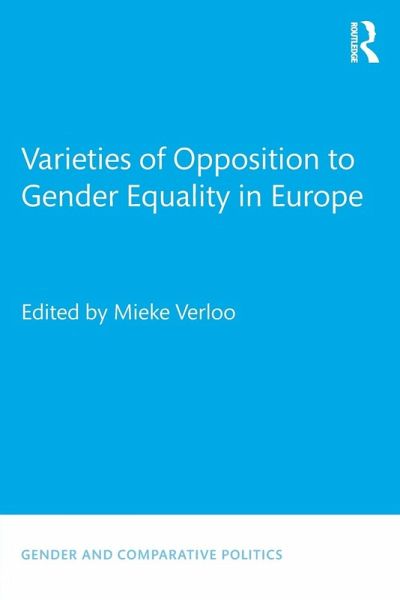
Varieties of Opposition to Gender Equality in Europe

PAYBACK Punkte
27 °P sammeln!
In contrast to the wealth of studies on progress towards gender equality, opposition to gender equality is rarely studied, which makes it difficult to understand the positive and negative dynamics of gender equality as a political project. The first of its kind, this timely collection examines the potential and challenges of our current scholarship on understanding opposition to gender+ equality in Europe. Divided into three parts, Mieke Verloo and her team of international experts begin Varieties of Opposition to Gender Equality in Europe by theorizing the dynamics of opposition to gender equ...
In contrast to the wealth of studies on progress towards gender equality, opposition to gender equality is rarely studied, which makes it difficult to understand the positive and negative dynamics of gender equality as a political project. The first of its kind, this timely collection examines the potential and challenges of our current scholarship on understanding opposition to gender+ equality in Europe. Divided into three parts, Mieke Verloo and her team of international experts begin Varieties of Opposition to Gender Equality in Europe by theorizing the dynamics of opposition to gender equality policies in Europe. Part Two highlights oppositional actors (politicians, governments, citizens, policy makers, churches) and political arenas (parliament, courts, Internet), as well as different and opposing visions of gender+ equality. Part Three concludes with a framework for understanding oppositional dynamics on gender equality change. Setting the agenda for future research, this book will be useful for students of gender and politics, social movements, European integration, and policy studies, as well as for high-level policymakers, students, and feminist activists alike. It will be an inspiration to thinkers and doers and to scholars and political actors.














